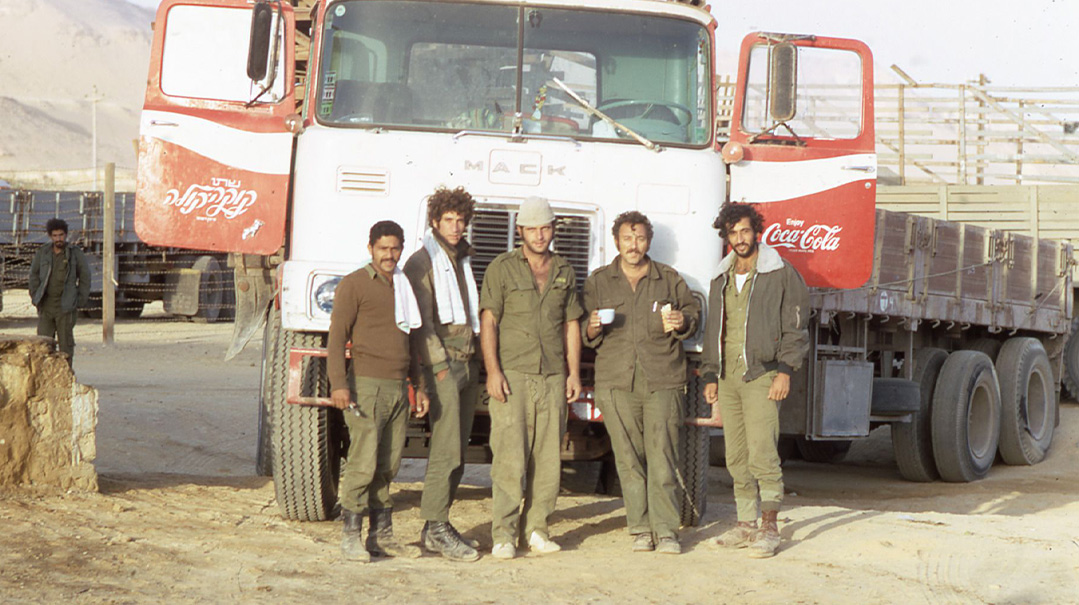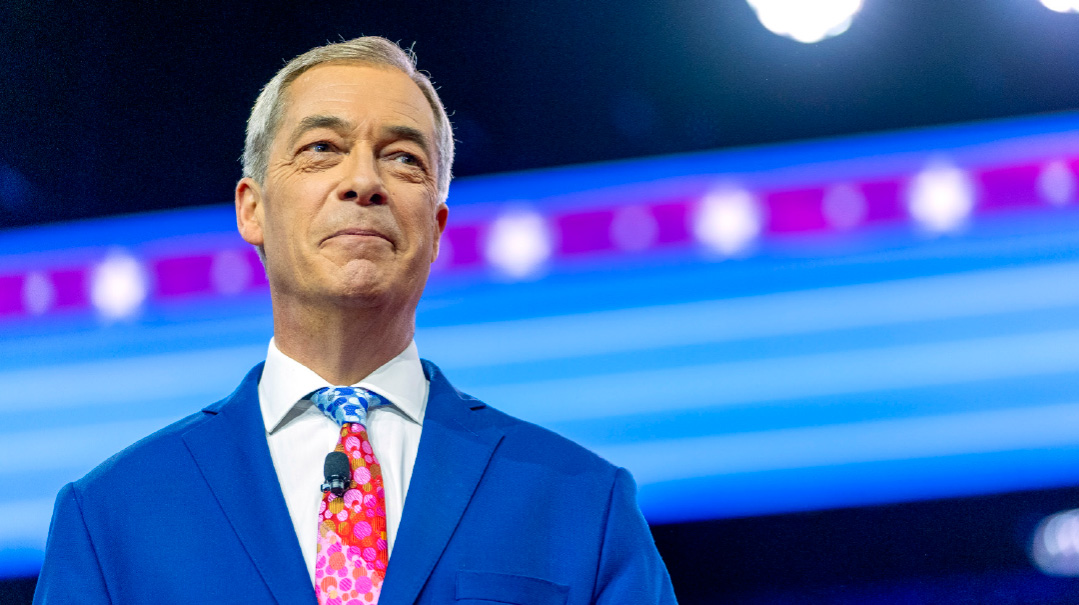Thank You to the Soldiers

"It was all worth it — just so that young children can grow up here"

Thank You to the Soldiers
IT
was the pronounced limp that gave him away. The weather-beaten man in his seventies was sitting in the shade of a jeep at the top of the Tzor’a Ridge, a hill overlooking Beit Shemesh, and playing chess with a slightly younger equivalent when I walked past with my wife and toddler.
At the intersection of back-country trails and with a view stretching all the way to Ashkelon, Tzor’a draws teens on ATVs, families on Yom Ha’atzmaut barbecues, and people losing themselves in the sunsets.
The last clearly included the man who limped toward us to say hello.
“I’m a veteran,” he said by way of greeting, gesturing in explanation toward his crippled leg.
Clearly wanting to talk, it wasn’t long before the man told his story.
“This is me in 1967,” he said flipping open his wallet to reveal a picture of a young soldier wearing the beret of Israel’s fabled Paratroopers Brigade. “In the Yom Kippur War, I lost many friends.”
Putting two and two together — his Tzanchanim background and the references to the bloodiness of the battle — I realized what he was referring to.
The “Chinese Farm” — so-called because the Israelis mistook the Japanese characters on the agricultural equipment for Chinese — is how the battle has gone down in Israeli history. A reserve unit had been thrown into the most horrific encounter of the war, as they attacked trenches of Egyptian infantry bristling with anti-tank weaponry in a bid to clear the way for Israeli forces to break through to the Suez Canal.
The effort killed many of the soldiers in the 247th Paratroopers Reserve Brigade, some of them older veterans of previous wars, and the man in front of me was scarred for life. “My friend takes me up here to get away,” he said.
We talked for a minute or two longer. He was happy that I’d heard of Colonel Danny Matt, his commanding officer, and knew of the brutality of the battle. Living with those memories was clearly his life, and the fact that someone from the next generation had read about it was meaningful.
He prepared to go back to his chess game, and paused, looking at my two-year-old, before saying something astounding.
“You know, with all the memories that I have, it was all worth it — just so that young children can grow up here.”
The man — I forget his name — went back toward his jeep, friend and memories, but that line has stayed with me because of the way that it was delivered.
Without a trace of judgmentalism, of the secular-chareidi tension that often accompanies discussions about the army in Israel, he had said that the horror he’d witnessed was worth it to give us all a future.
In the week of Israel’s Yom Hazikaron, when the country remembers its fallen, that man is a reminder of the hakaras hatov owed to those who’ve sacrificed for Israel.
That has no bearing on the debate over chareidim doing army service. Gedolei Yisrael have been abundantly clear that Torah learning is a primary national duty, and no one should underestimate the spiritual challenge of the permissive, coed Israeli military.
But those two facts aren’t contradictory. All over the country the men who carry battle scars and the mothers who worry that their sons won’t come back, deserve our gratitude.
As the old soldier on Tzor’a Ridge told me, they’re doing it so that all our children have a future here.
Winner Takes All
First Boris Johnson, then Antony Blinken, and now Nancy Pelosi — ever since Ukraine repulsed Russia’s attack on Kiev, a parade of VIPs have fallen over themselves to greet war hero Zelensky.
In the process, they’ve revealed one of the biggest takeaways of the conflict: The world loves a plucky winner. If Zelensky had fled and eastern Ukraine fallen in 72 hours — as the Kremlin planned — the current Western cash-and-arms deluge would never have happened.
As they nervously eye an expansionist China, Taiwanese leaders have digested the lessons of Ukraine’s resistance. In an interview with CNN, Taiwanese foreign minister Joseph Wu said that the island nation was studying both Ukrainian forces’ use of asymmetric warfare to defeat the vast Russian military, and the country’s fighting spirit.
But as he appealed for US support, Wu will be aware that America is more likely to help an ally that helps itself.
-1.4%
News that GDP shrank in the first quarter this year had the White House spinning like a dreidel, with Joe Biden saying that with the underlying economy healthy, he wasn’t worried. Per the WSJ, many economists agree that the unexpected GDP shrinkage was down to a trade imbalance with exports depressed by supply chain difficulties. But with Washington in pre-midterm mode, any economic bad news is bad for political business.
“A sacred circle is drawn around those whom the progressive modern left are prepared to go into battle for, and it seems as if the Jews aren’t in it.”
Almost a year on from the explosions of anti-Jewish hate on the streets of London and New York as Israel and Hamas fought last summer, British comedian David Baddiel’s words in his book Jews Don’t Count describe the alienation that many on the Jewish left feel toward fellow progressives for whom anti-Semitism has become a uniquely acceptable strain of racism.
There’s a poignancy to the disenchantment of Jewish progressives with the left — one that Israeli diplomat and memoirist Yehuda Avner noted about Golda Meir.
Israel’s prime minister once said to herself in earshot of Avner, “I look around me at the United Nations, and I think to myself, we have no family here. Israel is entirely alone — but why should that be? Why? Why?”
The words “am levadad yishkon” may have been familiar to her, but sadly, Golda couldn’t understand why her fellow socialists abandoned the Jewish state.
(Originally featured in Mishpacha, Issue 909)
Oops! We could not locate your form.







